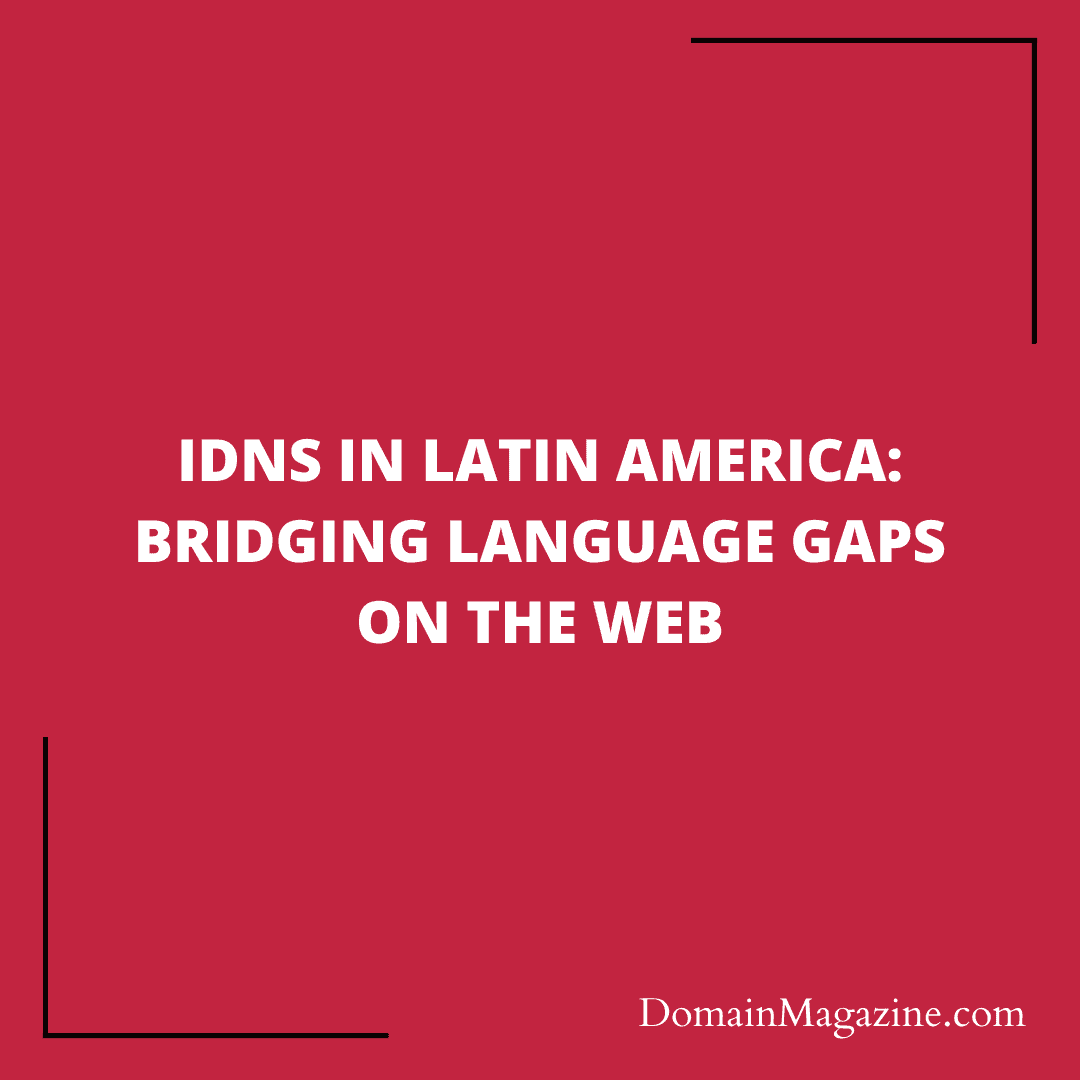The Internet, once dominated by English-language domain names, is evolving to cater to the linguistic richness of diverse populations around the world. In a significant development, Latin American countries are now opening their digital doors to Internationalized Domain Names (IDNs), a move that celebrates linguistic diversity and empowers users. Let’s delve into this exciting development, with a special focus on Paraguay and its recent initiatives in this regard.
The Power of IDNs
The Internet is a global phenomenon, and its accessibility should transcend language barriers. Enter Internationalized Domain Names (IDNs), a concept introduced by ICANN (Internet Corporation for Assigned Names and Numbers) back in 2003. IDNs allow domain names to include special characters from various languages, making the web more inclusive and user-friendly.

Paraguay Leads the Way
In the heart of South America, Paraguay has taken a significant step in this direction. The Network Information Center registry in charge of Paraguay’s national extension has embraced IDNs, marking a historic shift. As of September 13, 2023, third-level domain names in Paraguay (e.g., .com.py or .org.py) can now incorporate special characters from multiple languages, including Guarani, reflecting the cultural richness of the country.
Prioritizing Domain Owners
To ensure a smooth transition and protect against cybersquatting risks, the launch phase in Paraguay allows current owners of third-level domain names to register the IDN versions of their domains at no cost. This exclusive opportunity lasts until January 25, 2024. For example, if someone owns “senor.com.py,” they have the priority to acquire and renew “señor.com.py” during this period.
A Regional Trend
Paraguay is not alone in this endeavor. Across Latin America, countries like Argentina, Brazil, Chile, Colombia, Cuba, Guatemala, Nicaragua, Puerto Rico, and Uruguay have also embraced IDNs to varying degrees. Each country has its own rules and character sets, tailored to its linguistic landscape. This move signifies a collective effort to make the Internet more accessible to non-English speakers.

Embracing Linguistic Diversity
At its core, the introduction of IDNs reflects a shift in perspective. Instead of expecting users to adapt to the Internet, the Internet is adapting to its users. IDNs provide an opportunity for website owners to better connect with their audience and assert their brand identity in languages that are close to their hearts.
Navigating Typosquatting
With the introduction of IDNs, there comes the challenge of typosquatting, a concern for both website owners and users. Similar-looking characters can lead to confusion and potentially malicious activity. It’s crucial for domain owners to be vigilant and protect their brand against this risk.
In conclusion, the advent of Internationalized Domain Names in Latin American countries, particularly in Paraguay, represents a significant stride towards inclusivity and linguistic diversity on the Internet. As the digital landscape continues to evolve, embracing the unique characters and languages of each region enriches the online experience for users and strengthens the cultural identity of nations in the digital age. So, as a domain name enthusiast, keep an eye on this exciting trend and explore the world of IDNs as it unfolds in Latin America and beyond.
Source: https://news.gandi.net/en/2023/09/paraguay-internationalized-domain-names/


Join the Discussion